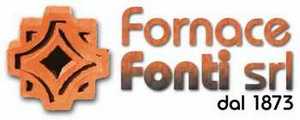 Until 1948 the company had no permanent employees, the work was seasonal and was given to families coming from the Padana region.
Until 1948 the company had no permanent employees, the work was seasonal and was given to families coming from the Padana region.
Permission was given by the owner to set up small factories which still formed part of the company, in order to provide the employees with a place where to live and work.
This was a small piece of land where the whole family including children worked to produce bricks, leaving them to dry in the sun.
A large family could have numerous pieces of land, and being paid by the piece they tried to produce as much as possible because the season ran from March to September and their earnings had to last the year.
A family of 5/6 people could produce up to 2000 bricks per day.
The first radical changes happened in 1948 when the system changed and the first machines were bought: 2 brick producing machines, and therefore the need arose to hire permanent employees. In that year the pay system also changed from that of payment by piece to an annual salary.
During the Second World War the furnace was occupied by the Germans first and later by the English, causing production to stop.
The Germans, however, had respect for the founding family and the company perhaps because the Fonti family were of Swiss origin and therefore neutral.
The flood.
In the Polesine region many industries were in operation before the flood: 12 sugar processing factories, 60 flour mills, 2 rice processing factories, 30 dairy companies, 3 kemp processors, 9 pasta factories, 5 shoe factories, a paper mill, 45 brick factories, a hundred or so methane-compressing centres etc...
During the flood the industrial sector was caused huge damages because many of these companies were under water and expensive machinery was damaged as well, bringing to a halt production and export.
 The company obtained funds of about 700,000 Lire to cover damages caused by the flood. These funds were granted through local governmental organisations.
The company obtained funds of about 700,000 Lire to cover damages caused by the flood. These funds were granted through local governmental organisations.
The years which saw the greatest growth in the company were between 1948 and 1961 when it had its largest number of employees, reaching 70 working teams. At that time they were emerging from World War 2 and the flood and the demand for building material was great even from far away cities such as Turin, Milan and Bolzano. The people were eager to rebuild what had been destroyed first by the war and later by the flood.
The Fonti kiln was also flooded : at that time there were poor means of communication and many people only realised that the river bank had burst when they saw the waters coming.
When the waters arrived in Grignano, the fire in the furnace was burning and when the workers realised that the surrounding countryside was flooding they ran to open the kiln doors to avoid that the water pressure make it explode, before running off to save their homes.
 Today Fornace Fonti has taken up once more the production of handmade bricks and special pieces for various uses. They are specialised in the restoration of old floors and coverings with special focus on the handmade roof tile and the photovoltaic tile, born of the necessity to combine the art of restoration with the energy saving of renewable energy sources.
Today Fornace Fonti has taken up once more the production of handmade bricks and special pieces for various uses. They are specialised in the restoration of old floors and coverings with special focus on the handmade roof tile and the photovoltaic tile, born of the necessity to combine the art of restoration with the energy saving of renewable energy sources.
This production, carried out by specialised craftsmen is characterised by imperfections typical of single handmade pieces.
In addition, the coal kilning in a HOFFMANN oven gives the product a special colouring, a delicate polychromy that highlights the masonry giving a touch of prestige and originality to every construction.






